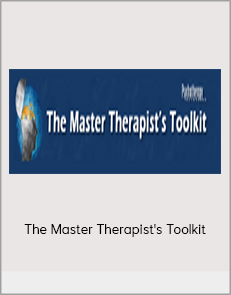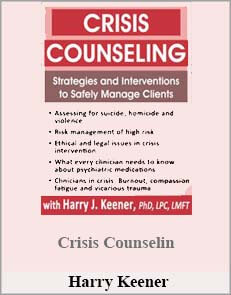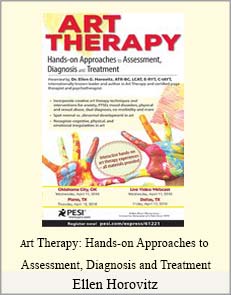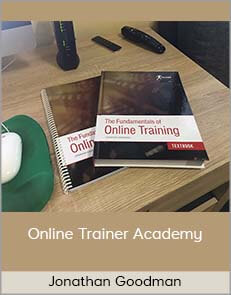The Master Therapist’s Toolkit
$50.00$199.99 (-75%)
Move beyond the limitations of acceptance and unconditional positive regard
The Master Therapist’s Toolkit
Check it out: The Master Therapist’s Toolkit
Discover the One, Complete Therapist Toolkit That Offers Expert Techniques for Treating the Wide Range of Therapeutic Conditions …
So You Can Be Confident With Even the Most Challenging Clients.
This comprehensive kit features master clinical practitioners ready to teach you their transformational approaches
You’ll learn proven, practical approaches and interventions from leading clinical innovators.
The Master Therapist’s Toolkit is packed full of expert techniques developed by leading therapists through years of experience and research. This kit is designed to increase your counseling effectiveness, enhance your professional development and prepare you with tested treatment approaches to improve your client outcomes. We have gathered the tools and resources for some of the most regularly encountered conditions—the ones that often prove the most challenging to treat—and combined them into one convenient package for you. Featuring some of the most respected and trusted experts in the world, this one-of-a-kind therapeutic compilation offers profound insights and practical techniques that will transform your practice.
Get expert guidance on:
- Recognizing internal attachment disorder and mastering effective ways—including somatic approaches—to helping clients overcome feelings of shame and worthlessness
- Treating addictive behaviors and their often interactive relationship to underlying trauma symptoms, effectively
- Unraveling the complexity of clients with borderline personality disorder and exploring how to use the Internal Family Systems (IFS) approach to manage traps and lead these clients to breakthrough healing
- Treating Post-Traumatic Stress Disorder (PTSD) by building a therapeutic collaboration around the client’s motivation to change, and when applicable, including additional family members in the session
- Working with clients to overcome anxiety quickly and effectively by leveraging their fears and overriding the responses that perpetuate them
- Moving a stalled therapy relationship forward without making the client frustrated or defensive
- Forming genuine relationships with narcissistic, self-absorbed clients through therapeutic leverage and empathic confrontation
- Overcoming resistance and creating therapeutic movement through a range of clinical methods
- Customizing treatment approaches to the client’s needs in order to maximize treatment outcomes.
Your Toolkit Includes:
The complete access to our popular series: The 6 Most Challenging Issues in Therapy
1) Treating Clients with Severe Attachment DisordersJanina Fisher, Ph.D.Develop better ways of working with clients trapped in their feelings of shame and worthlessness by learning to: |
|
|
|
| Janina Fisher, Ph.D., is assistant director of the Sensorimotor Psychotherapy Institute, an instructor at the Trauma Center in Boston, and a former instructor at Harvard Medical School. She lectures and writes about integrating neuroscience research and body-centered approaches into traditional psychotherapy. | |
2) Treating the Borderline ClientRichard Schwartz, Ph.D.Discover ways to avoid unnecessary struggles through openhearted acceptance of yourself and the client by: |
|
|
|
| Richard Schwartz, Ph.D., is director of the Center for Self Leadership and the originator of the Internal Family Systems model. His books include Internal Family Systems Therapy and, most recently, You Are the One You’ve Been Waiting For. | |
3) Treating the Stuck and Self-Destructive ClientWilliam Doherty, Ph.D.Learn how to move beyond subtly blaming the client, giving speeches, or becoming defensive when therapy stalls by: |
|
|
|
| William Doherty, Ph.D., is a professor and director of the Citizen Professional Center at the University of Minnesota. He’s the author or coauthor of 12 books on families and family therapy, including Take Back Your Marriage, Take Back Your Kids, and Family Therapy, with Susan McDaniel. | |
4) Treating the Narcissistic ClientWendy Behary, L.C.S.W.Learn how to form genuine relationships with self-absorbed, arrogant clients lacking in empathy by: |
|
|
|
| Wendy Behary, L.C.S.W., the founder and director of The Cognitive Therapy Center of New Jersey and of The New Jersey Institute for Schema Therapy, is the author of Disarming the Narcissist: Surviving and Thriving with the Self-Absorbed. | |
5) Treating the Highly Resistant ClientClifton Mitchell, Ph.D.Get practical guidance on a range of clinical methods that will help you overcome stagnation and create therapeutic movement with your most hard-to-treat cases by learning |
|
|
|
| Clifton Mitchell, Ph.D., is a professor at East Tennessee State University, where he received the Teacher of the Year award in 2002. He’s the author of Effective Techniques for Dealing with Highly Resistant Clients. | |
6) Customizing Therapy with the Resistant ClientJohn Norcross, Ph.D.Explore how to match treatment approaches with client characteristics to avoid stalled sessions by understanding: |
|
|
|
| John Norcross, Ph.D., A.B.P.P., is a professor of psychology and distinguished university fellow at the University of Scranton, a clinical psychologist, and editor of the Journal of Clinical Psychology: In Session. He’s the author, coauthor, and editor of many books and publications, including Psychotherapy Relationships That Work. | |
Also Included…
These Practice-transforming Workshops from the Psychotherapy Networker Symposium
Addictive Behavior as the ProblemJanina Fisher, Ph.D.It’s no secret that many therapists consider the field of addictions treatment to be dangerous foreign territory with its own special language and methods. But increasingly, therapists and substance abuse professionals alike have begun to recognize the connection between addictive behavior and traumatic life experience. In this video, Janina will present an approach to addictive behavior that: |
|
|
|
| Janina Fisher, Ph.D., is assistant director of the Sensorimotor Psychotherapy Institute, an instructor at the Trauma Center in Boston, and a former instructor at Harvard Medical School. She lectures and writes about integrating neuroscience research and body-centered approaches into traditional psychotherapy. | |
Mastering the Anxiety GameReid Wilson, Ph.D.Therapists are supposed to make clients safe and secure, creating a cozy haven from a cruel world, right? Well, when it comes to treating anxiety, there’s growing evidence that the quickest, most effective approach involves instructing them to ramp up their fears while telling themselves how much they welcome the experience. In this video, you’ll learn how to help clients shift their relationship with their fears and override the responses that perpetuate them. After this session you’ll be able to: |
|
|
|
| Reid Wilson, Ph.D., is a licensed psychologist who directs the Anxiety Disorders Treatment Center in Chapel Hill and Durham, NC. He is also Adjunct Associate Professor of Psychiatry at the University of North Carolina School of Medicine. He is author of the just-released Stopping the Noise in Your Head: The New Way to Overcome Anxiety and Worry and the classic self-help book Don’t Panic: Taking Control of Anxiety Attacks. He is co-author of Stop Obsessing! How to Overcome Your Obsessions and Compulsions, as well as Anxious Kids, Anxious Parents: 7 Ways to Stop the Worry Cycle and Raise Courageous & Independent Children. | |
The Challenge of Treating Complex PTSDMary Jo Barrett, MSW and Linda Stone Fish, MSW, PhDWhen working with trauma cases do you often see clients go into flight, fight, and/or freeze? Do they yell at you, insult you, or leave the session? Are there times you find yourself angry at your clients or just downright don’t like them? Do you recognize your own flight, fight, and/or freeze response? Welcome to the messy, often confusing world of trauma treatment. In this video, you’ll explore practical in-session techniques as well as a framework to help you recognize what’s happening when things heat up and get intense. After this session you’ll be able to: |
|
|
|
| Mary Jo Barrett, MSW, the founder and director of the Center for Contextual Change, teaches at the University of Chicago. She’s the coauthor of Systemic Treatment of Incest and coeditor of Treating Incest: A Multimodal Systems Perspective. Linda Stone Fish, MSW, PhD, the David B. Falk Endowed Professor of Marriage and Family Therapy at Syracuse University, is the author of Nurturing Queer Youth. |
|
| Limited Time Offer! Register today and you’ll also get: |
| FREE Audio Recordings: The Challenge of the Angry Client with Wendy Behary, LCSW Get the insight and practical tools you need to handle even your most angry clients, defuse your own triggers and use empathic confrontation. Get two 90-minute audio recordings, as well as her workshop handouts. |
| FREE Networker Magazine Article PDF Download: Six Master Therapists Recall Their Most Unforgettable Sessions Many therapists speak of the privilege of witnessing another’s authenticity, beyond the cheery “I’m fine” presentations of self that human beings work so hard to maintain. In the process, clinicians get the chance to experience a particular depth of connection with clients that’s unlike any other. And when clients take a leap that propels them out of some longstanding, misery-making behavior, therapists feel their own hearts lift. Hear from leading experts Terry Real, Mary Jo Barrett, Courtney Armstrong, Ron Taffel, Margie Nichols and Hedy Schleifer as they answer the question, “What’s your most memorable therapeutic moment?“ |







![Mindvalley Academy [Gina DeVee] – Live & Luxurious Course](http://havecourse.me/wp-content/uploads/2020/04/Mindvalley-Academy-Gina-DeVee-–-Live-Luxurious-Course.jpg)




























